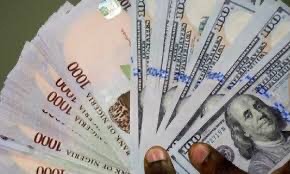Economic and Financial Crimes Commission officials have broadened their crackdown on Bureau De Change operators, apprehending traders in Abuja, Lagos, Kano, and Port Harcourt, as the naira continued to weaken against the US dollar in both official and parallel foreign exchange markets.
The recent enforcement actions were in response to government efforts to address the naira’s recent decline against the greenback. Currency speculators in the forex and digital cryptocurrency markets have reportedly added pressure on the naira, with crypto traders being accused of speculating against the national currency.
BDC operators in Abuja were arrested last week for alleged speculation against the naira despite resistance. Law enforcement agencies have persisted in conducting raids on unauthorized currency traders in the Federal Capital Territory.

Currency operators in various markets confirmed that the recent enforcement operations took place in Lagos, Kano, Port Harcourt, and Abuja on Monday, disrupting trading activities. Traders were cautious amid fears of arrests, leading to reduced trading volumes.
The naira was reported to be trading at N1,540/$ and being bought at N1,520/$. Traders expressed concerns about the impact of the arrests on market activities and the exchange rate.
The President of the Association of Bureau De Change Operators acknowledged the raids, noting that the focus was primarily on street traders, although some registered BDC operators were also affected. He expressed optimism that the currency would appreciate in due time.
At the parallel market, the naira closed at N1,540 per dollar, marking a 4.05% depreciation compared to the previous day. The naira’s decline was attributed to a dollar shortage resulting from foreign portfolio investors repatriating funds.
The official FX trading at the Nigerian Autonomous Foreign Exchange Market also saw a depreciation, with the dollar quoted at N1,520 on Tuesday, weaker than the previous day. This marks the official rate’s first close above N1500/$1 since March 19, 2024.
The fluctuations in the exchange rate were a result of reduced dollar supply and foreign exchange liquidity. The recent decline in the naira followed a period of appreciation in April 2024, which was curbed by a lack of fundamental FX liquidity policies.
Economists highlighted the need for increased FX liquidity through exports and foreign capital inflows to stabilize the naira. The absence of these inflows contributes to the currency’s volatility and underscores the importance of macroeconomic stability to attract investments.
Members of the Organised Private Sector expressed concerns over the exchange rate fluctuations impacting businesses, particularly manufacturers who may need to adjust prices to reflect the exchange rate. The shortfall in dollar supply was identified as a key factor contributing to the naira’s depreciation, with expectations of continued fluctuations.
The National President of the Nigerian Association of Chambers of Commerce, Industry, Mines, and Agriculture emphasized the challenges posed by the depreciating naira on import costs, inflation, and overall economic stability. Recommending potential interventions to stabilize the naira and attract foreign investment for economic growth.
From: Amadi Vincent































